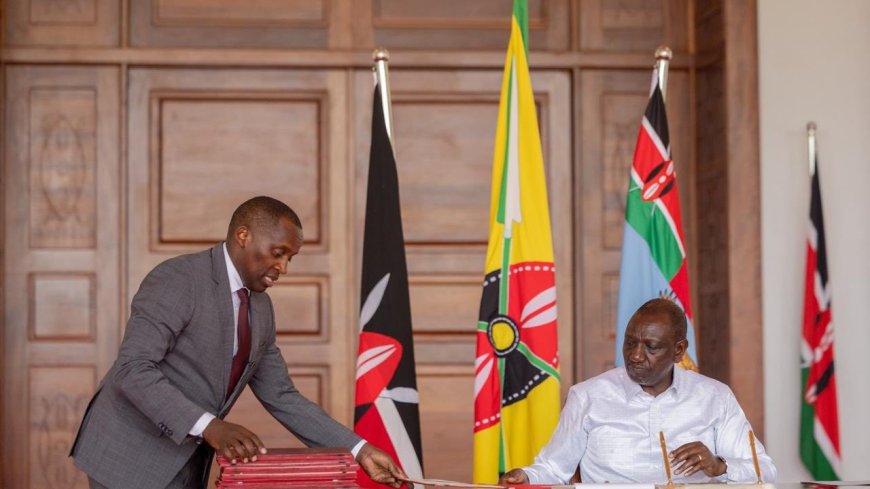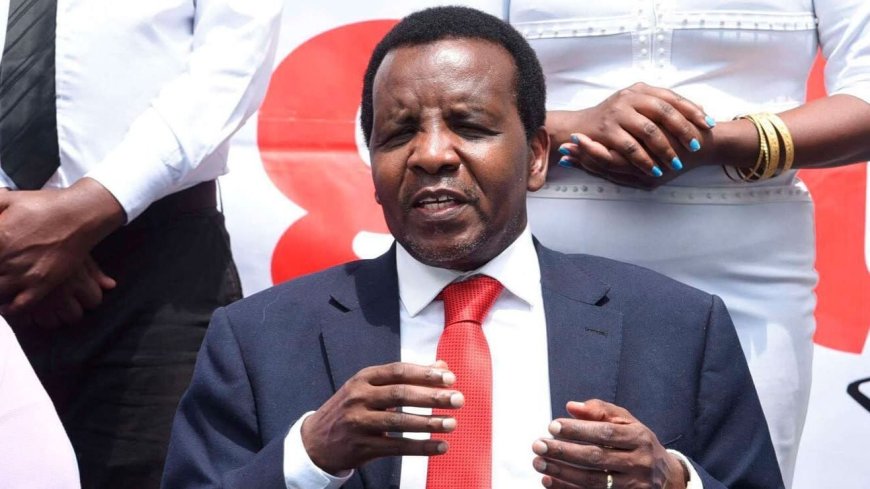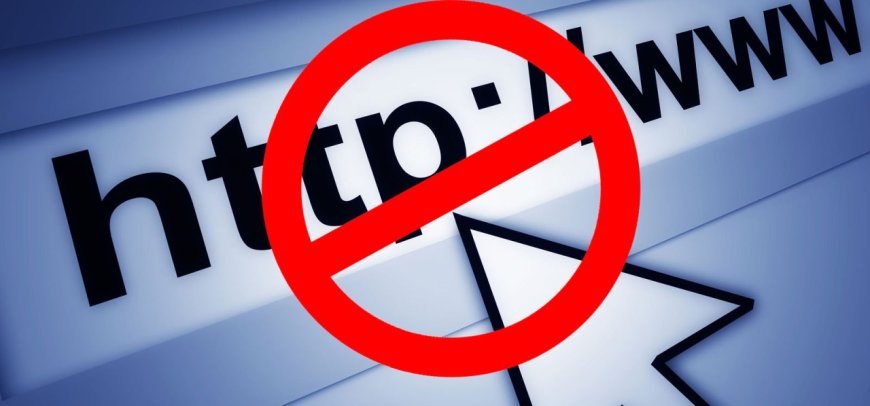Petition Filed Against Ruto's Controversial Cyber Crime Law
President William Ruto signed the law on October 15, 2025, ignoring mounting criticism that it could fuel digital authoritarianism and deepen state-sponsored repression.

Human rights activist and gospel musician Reuben Kigame has teamed up with the Kenya Human Rights Commission (KHRC) to challenge the controversial Computer Misuse and Cybercrimes (Amendment) Act, 2024, warning that it hands the state unchecked power to monitor, silence, and endanger critics.
President William Ruto signed the law on October 15, 2025, ignoring mounting criticism that it could fuel digital authoritarianism and deepen state-sponsored repression.
At the core of the petition is a contentious clause criminalizing the publication of what the law calls “false, misleading, or mischievous information.” Kigame and KHRC argue that the language is deliberately vague, giving the state dangerous leeway to decide what counts as truth.

Human rights activist and gospel musician Reuben Kigame during a past media address. /FILE
“The petitioners argue that this vague and overbroad definition effectively grants the regime the discretion to determine what constitutes truth and to punish those who speak out against it,” reads part of the filing.
In their view, the amendment opens the door for the government to weaponize “truth” as a political tool, threatening journalists, whistleblowers, and citizens who challenge official narratives.
The law also compels all social-media users to verify their accounts using government-issued legal names, a move the petitioners warn will unleash widespread state surveillance and profiling.
“The mandatory verification requirement constitutes a blanket infringement of the right to privacy under Article 31 of the Constitution,” the petition states. “It forces the unnecessary revelation of private affairs and directly infringes upon the privacy of communications.”
KHRC says this provision effectively outlaws anonymity — a vital layer of protection for whistleblowers, activists, and victims of state violence — and could expose them to harassment or worse.
The petition also highlights Kenya’s dark history of intimidation, noting that “in a country where human rights defenders, journalists, and activists have historically been abducted, tortured, or killed after speaking out,” mandatory identity verification poses a serious threat.
Censorship on Autopilot
Kigame and KHRC further warn that forcing digital platforms to rapidly delete flagged content will create a culture of fear and censorship, where companies over-remove posts to avoid state penalties.
“This law criminalizes speech on the basis of speculation,” the petition argues. “It targets communication that the state claims could hypothetically cause harm, without any demonstrable link between expression and outcome.”
Digital rights experts have echoed this concern, saying the amendment could turn Kenya’s online space into a “surveillance state” — one where speaking out feels like a crime.
Unconstitutional Passage
The petition also takes aim at how the bill was passed, saying it violated the Constitution. According to Kigame and KHRC, the law should have been debated in the Senate, as it affects county functions — but Parliament pushed it through without that step.
For Kigame, the issue is bigger than a single law — it’s about defending Kenya’s constitutional freedoms in an age where dissent increasingly lives online.
“This law legalizes fear,” Kigame said after filing the suit. “Kenya must not allow leaders to decide who can speak and who cannot. A government that fears criticism fears the truth.”
The petition sets up a major legal showdown that could shape the future of free speech, privacy, and digital rights in Kenya — and determine just how far the state can go in policing the internet.







